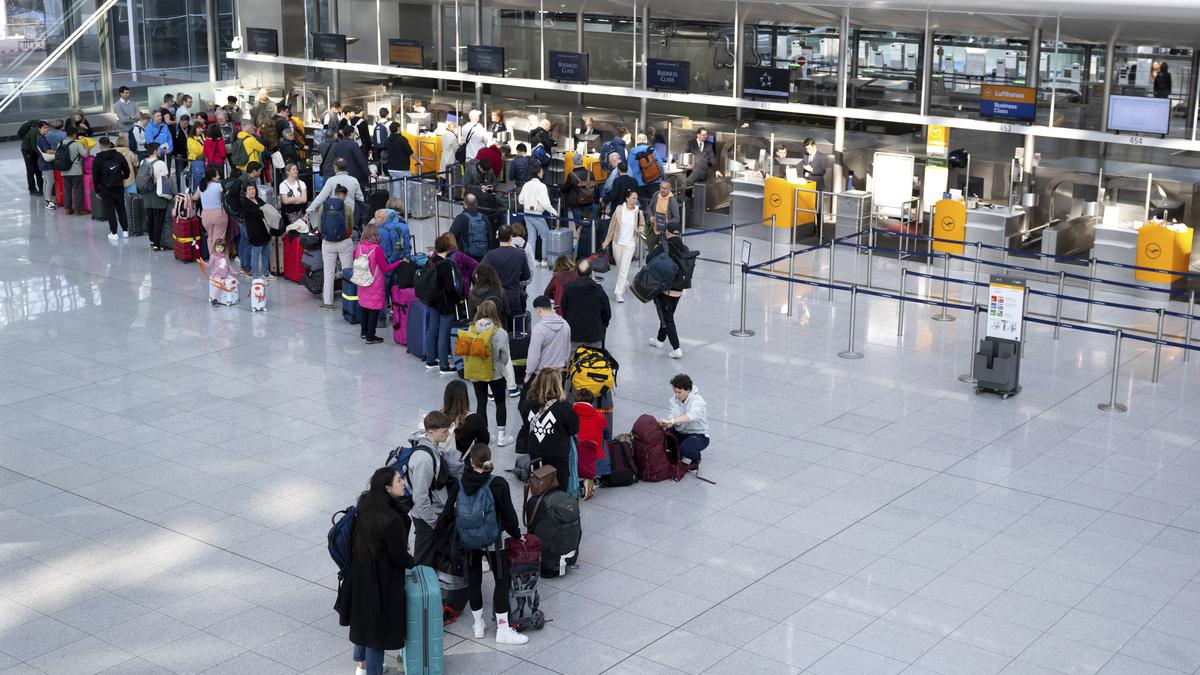Passengers wait at a Lufthansa check-in counter at Munich Airport, Germany on March 7. 2024. The Verdi trade union is paralysing important parts of German air traffic on Thursday and Friday with renewed warning strikes by several professional groups.
| Photo Credit: AP
Millions of travellers across Germany were affected by strikes again on March 7 after two unions called for two-day walkouts over wages and work conditions.
Around 80% of all long-distance trains as well as regional and commuter trains in the country were cancelled as train drivers went on strike. Air travel was affected as well, as ground staff for German airline Lufthansa stopped working early in the morning.
Also Read | German transport hobbled by train strikes, farmer blockades
The strikes led to traffic jams in cities and on highways, a shortage of share and rental cars, and plane passengers trying to desperately rebook flights to reach their destinations. Students arrived late for school and employees struggled to arrive on time for work as millions who usually rely on commuter trains found themselves stranded or stuck in traffic.
Lufthansa said earlier in the week that about 1,000 flights per day would have to be canceled and that around 200,000 air passengers would be affected.
Negotiations continue for Lufthansa ground staff and German rail operator Deutsche Bahn’s train drivers. The train drivers’ union GDL and Verdi called for the strikes on Thursday and Friday.
The strike on long-distance and regional passenger train services began at 2 a.m. (0100 GMT) Thursday. According to GDL, it is to last until 1 p.m. Friday. For freight transport, the strike started Wednesday at 6 p.m. (1700 GMT) and is to last until 5 a.m. Friday.
In addition to pay raises, GDL has been calling for working hours to be reduced from 38 to 35 per week without a pay cut, which Deutsche Bahn has refused.
The Ver.di union seeks a 12.5% pay raise, or at least €500 ($542) more per month, in negotiations for nearly 25,000 Lufthansa ground workers including check-in, aircraft handling, maintenance and freight staff.
Coinciding contract negotiations have resulted in several walkouts in the rail, air and local transport sectors in Germany in recent months, testing passengers’ patience over and over again.
Train driver union GDL announced earlier this week that more strikes were coming in the near future, but said it would no longer announce them 48 hours in advance, giving travellers less time to look for alternatives.




